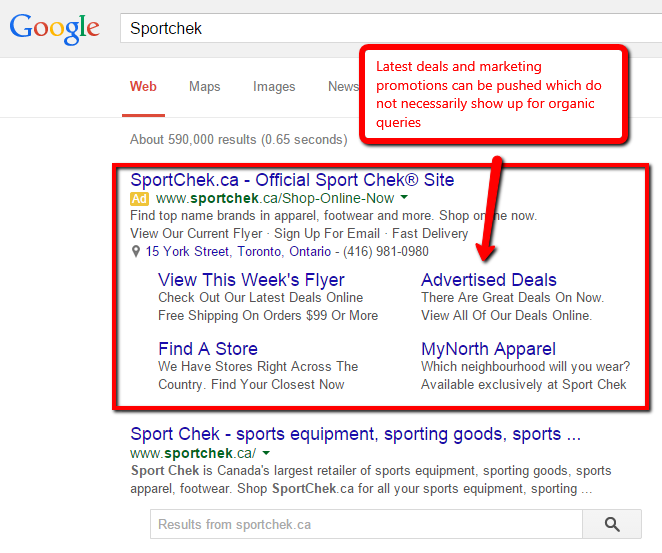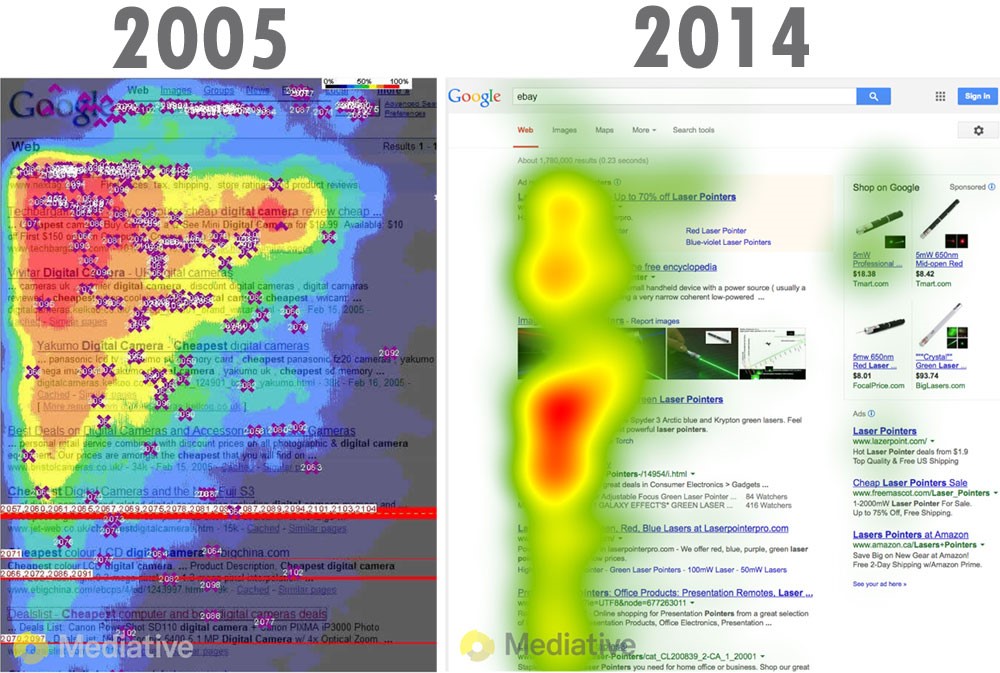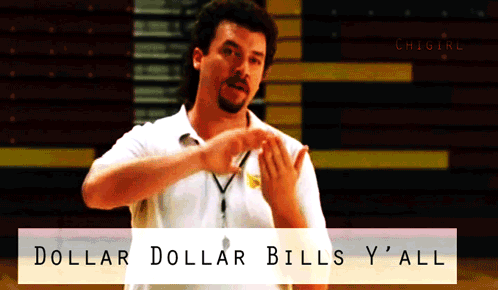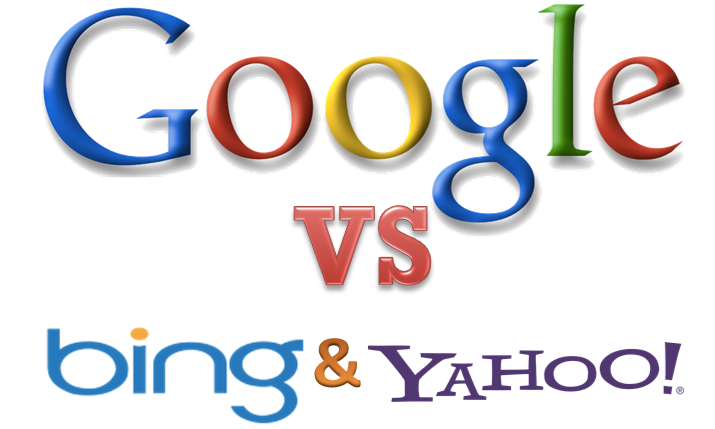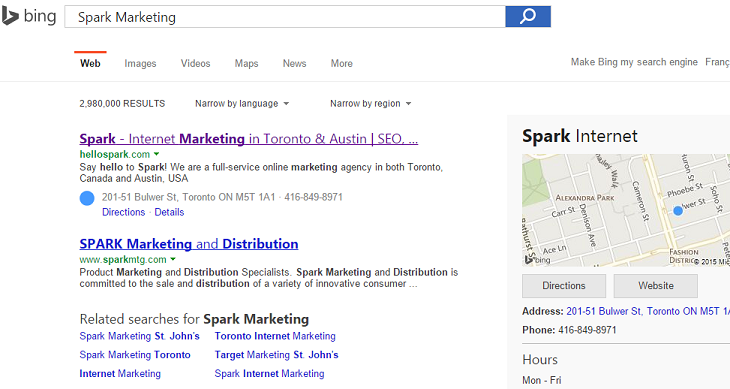Even in the online marketing world, PPC is sometimes seen as a black-box field that only a chosen few marketers really know anything about. There are lots of people out there with their own ideas about how users interact with Search Engine Results Pages (SERPs), but those assumptions usually aren’t based on real data and can actually end up hurting your ROI if you choose to believe them.
To fight back against all the misinformation out there, I’m going to give you my take on the five biggest PPC myths that kill campaigns and hurt your bottom line. It’s time to settle the score and get you real results!
1) Branded Keywords Are A Waste Of Money
False! There are several key reasons why bidding on branded terms is a good investment for companies. It all comes down to controlling your brand image and the user flow. Branded keywords are typically very cheap and allow you to control the marketing message and promotional offers that you need to get in front of your prospective client. Just take a look at how Sport Chek has used Adwords to highlight its latest sales and its MyNorth apparel:
By bidding on a branded term you are able to have confidence that the right messaging is matching up with the right search queries. Users that click through are sent to a page that you have Conversion Optimized with the right content for your current goals.
2) Top Placement Is Always The Most Profitable
Untrue! Pushing specific keywords to top position is a strategy that many companies fall into. However these keywords are more expensive and don’t always convert better. Conversion results are strongly based upon the ad copy, brand, and promotional offers you have in your ad. If you can get the ad you want in front of your users’ eyes for a cheaper price, then why not! It’s all about optimizing your campaign based on the numbers. People will often argue that you get better Click-Through-Rate (CTR) in top position, so it will help your Quality Score (QS). Yes, QS is based on CTR – however, this is an adjusted score based on the position you are in. Google knows that you will have a lower CTR in position 2, so it adjusts its QS accordingly. So let’s forget about CTR/QS and do the math on one scenario:
My Fairy-tale Scenario:
- 1000 impressions
- industry conversion rate of 2%
- 1st position CTR = 7% and 2nd position CTR = 4%
- 1st position CPC = $10 and 2nd position CPC = $6
Top Position: 14 conversions for $700 = $50 CPA
Second Position: 8 conversions for $240 = $30 CPA
Yes, we received more conversions in position 1 but it came at a much higher cost-per-acquisition (CPA). Why not use the remaining $460 on another keyword that can gain similar CPA results?
I know this scenario is super vague and there are several other factors that go into position bidding, but you get my point. Still not convinced? Here’s a little bonus that might help you: check out the heat map in Google SERP Eye-Tracking from Bruce Clay, INC. Position 2 looks a little darker, doesn’t it?
Conclusion: Top position placement can be the right strategy, but just don’t get stuck paying the extra dollars when the data is telling you otherwise!
Incorrect! Is your budget 100,000/month? If so you can probably get away with bidding on as many keywords as possible and paying the extra dollars. Otherwise you should do your research upfront and determine the most relevant keywords to your business goals.
- Looking to drive traffic – lower cost and product informative keywords
- Looking for direct sales – focus on intent based keywords for users further along the conversion funnel
Determine your business goals and your marketing budget, then make sure you’re pushing budget in the right areas by controlling the keywords you use. Once you’ve determined your budget and the best keywords for you to launch with, it’s now time to mine search query results. At this point you can use real data to make strategic decisions on how to grow, which — wait for it…
Means more ongoing PPC work! Guess we can’t just set it and forget it. Too bad, eh?
4) Google Is The Only Search Engine Worth Advertising On
Not accurate! This may come as a shock to you, but Yahoo/Bing own a combined 1/3 of the total search engine market share in the US (it’s about 80/20 in Canada). I know, right? Bing is actually becoming relevant again/for once. As an added bonus, Cost-Per-Clicks are actually much lower in Bing, meaning that we can get more traffic for less money.
Take a look at AdGooRoo’s results comparing Google & Bing CPCs:
Bing is not always for everyone, but if you give it a chance, it can make you a decent return. Now, if only they would clean up their interface to look more professional… Oh wait, they’ve pretty much copied Google’s template exactly.
5) Nobody Clicks On PPC Ads Or Display Banners
I’m going to end this last myth with a pretty quick answer:
There is a reason why Google Adwords’ Quarterly Revenue is in the billions.
People still click ads. I mean, Google wouldn’t be one of the most profitable digital companies in the world if they didn’t. It’s sometimes hard to separate customer interaction from your personal user interaction, but that’s where online marketers like myself come into play.
Want more in-depth information on these myths? Have any other PPC myths that you need debunked? Feel free to drop us a line and we can conquer this PPC marketing thing together.

